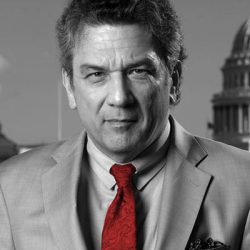By Solomon L. Wisenberg
Solomon L. Wisenberg is a partner and co-chair of the white collar criminal defense practice group of Nelson Mullins Riley & Scarborough, LLP.
With the assistance of Joshua Mooney of Ross, Dixon & Bell, L.L.P.
Introduction
If one theme stood out in the October 2000 Supreme Court Term, it was the Court’s exasperation with lower courts, state and federal, who continued to ignore the Court’s precedents. In several decisions from this term, the Court invalidated novel efforts to distinguish, explain, weasel out of, and disrespect inconvenient Supreme Court cases.
In two capital cases, Penry v. Johnson and Shafer v. South Carolina, the Court overturned death sentences because juries were not properly instructed regarding mitigating evidence or the possibility of parole. In each case, the Court felt that the State had ignored clear precedent on how to convey the instructions. Penry involved a defendant whose previous death conviction for the same murder had been overturned by the Court 12 years before on virtually identical grounds – that the jury had not been allowed through instructions to adequately give effect to the mitigating evidence presented to it. In Shafer, South Carolina only waited four years to ignore the Court’s 1997 ruling that juries deliberating future dangerousness must be informed, upon request, whether life sentences carry any possibility of parole.
In Ohio v. Reiner, the Court reminded Ohio that the Fifth Amendment Privilege Against Self Incrimination has applied to innocent as well as guilty people for about 50 years. In Arkansas v. Sullivan, the Court reiterated that pretextual traffic arrests (and subsequent searches) are perfectly proper under the Fourth Amendment. Arkansas had failed to get the message and its high court majority actually believed that it could give the Fourth Amendment a more expansive reading than the Supreme Court did. In Atwater v. City of Lago Vista, the Court upheld the custodial arrest of a mother who violated a misdemeanor seatbelt law. Sullivan and Atwater together go far towards wiping out any real Fourth Amendment protection for American motorists, since traffic violations are easy enough to trump-up.
Vehicular drug roadblocks were invalidated as were thermal imagers aimed without probable cause at homes. The police were allowed to briefly detain citizens and follow them into their homes while waiting for a warrant to be obtained. South Carolina, always on the cutting edge of individual liberty, was told to stop secretly administering drug tests to pregnant mothers and turning the results over to the police. Justice Kennedy sought to explain, incomprehensibly, how the “objectively reasonable” test differs for purposes of excessive force and qualified immunity analyses.
In the habeas corpus field, the Court fairly construed recent stringent congressional enactments, except in the area of alien detention where a majority misread clear statutory language in order to preserve judicial review. The Court also ruled that removable, hence illegal, aliens cannot be indefinitely detained by the Attorney General, despite what appears to be clear statutory authority for his doing so.
Sick pot smokers suffered an unsurprising setback when the Court ruled that California’s medical necessity defense is not a defense at all to federal charges of drug manufacturing and distribution. In reaching its decision, the Court had to overturn a Ninth Circuit opinion that appeared on its face to have been written by a very ill judge. The Court reluctantly informed Pennsylvania that it could not convict a man of operating a waste site without a permit when the State’s own evidence established that the permit was valid. This is called convicting someone of a crime without proving all of the elements of the offense. Pennsylvania had never received the news that this has been unconstitutional for about 40 years. The Court also ruled that judges can amend common law crimes and apply them retroactively to criminal defendants, even though legislatures are prohibited from doing the very same thing under the Ex Post Facto and Due Process Clauses. (It sure is nice to be the only branch that gets to interpret the Constitution.)
Several terms ago the Court ruled that the Sixth Amendment Right to Counsel was offense-specific. Lower state and federal courts had “clarified” this concept by creating an exception for “factually-related” crimes. The Court calmly put the kibosh on this nonsense, noting that it had “meant what it said.” Unfortunately, this particular decision has the potential to eviscerate the pre-trial Sixth Amendment Right to Counsel since so many perpetrators violate more than one statute in the course of a criminal transaction
The Court reaffirmed the startling proposition, in light of a contrary holding from the Seventh Circuit, that extra jail time caused by an attorney’s incompetence is actually prejudicial. Moreover, in ruling that the federal mail fraud statute does not apply to people who fraudulently obtain video poker licenses from Louisiana, the Court preserved one of that State’s favorite pastimes. Prison-related lawsuits were rather harshly scrutinized and sexual predators remained under lock and key, pursuant to the State of Washington’s “civil confinement” statute, despite the best efforts of the Ninth Circuit to distinguish an earlier on-point Supreme Court opinion that had validated an almost identical Kansas statute modeled on the Washington plan.
Herewith is the third annual summary of Criminal Law and Procedure Decisions of the Supreme Court. Footnotes and internal quotations have generally been omitted. Joshua Mooney of Ross, Dixon & Bell has substantially assisted me in this year’s project. Summer associate Teah Lupton provided support for the habeas corpus summaries. As always, the opinions expressed in the Comments sections, and in this Introduction, are entirely my own and most assuredly do not represent the views of FindLaw or Ross, Dixon & Bell.


